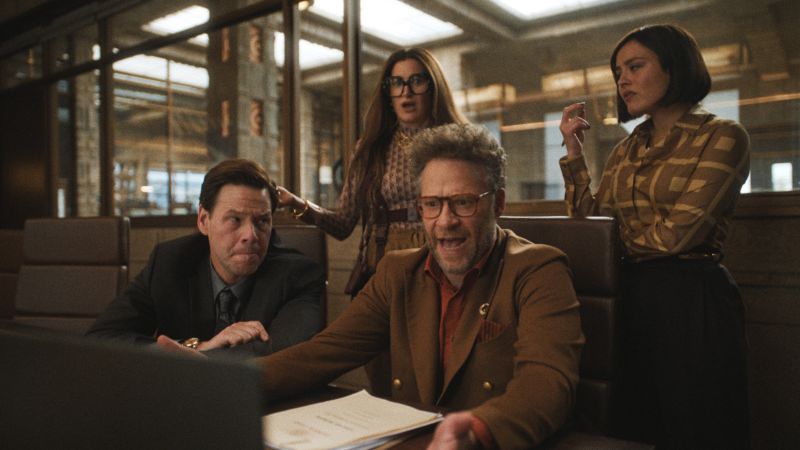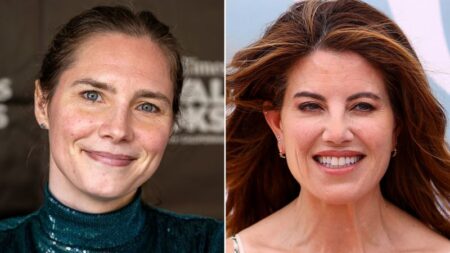The new Apple TV+ series titled “The Studio” delves into the realm of office comedies, presenting a workplace setting that vibrates with the presence of notable Hollywood figures like Martin Scorsese, Zoë Kravitz, and Zac Efron. This series intertwines the everyday absurdity of office dynamics with the glitz of Hollywood, creating a backdrop that feels both familiar and surreal. Co-created by Seth Rogen, who takes on the role of Matt Remick, the show serves as a sharp satire regarding the contemporary film industry. It explores themes of insecurity among executives, inflated artist egos, and rampant corporate greed.
Rogen’s character, Remick, is portrayed as a new head of the fictional Continental movie studio, aiming to navigate through the chaotic waters of Hollywood with an ensemble cast that carries the weight of A-list talent. The dynamic punctuates the series with a sense of humor that resonates with anyone who has experienced the trials of modern employment, particularly those who find themselves in the throes of a frustrating work atmosphere. Rogen explicitly articulates his intent to craft comedic material that connects with a broad audience, stating, “We took great care to make sure the comedic premise itself was relatable to anyone watching,” in an interview with the Guardian.
While the foundation of the show revolves around laughable scenarios, one must decipher underlying sentiments that form the interactions and dialogue. Such nuances often require contextual translation—understanding the deeper meanings encapsulated within the humor. For instance, during an early scene, Remick approaches director Pete (portrayed by Peter Berg) with an idea for a scene only to be curtly dismissed. The dialogue exemplifies the passive-aggressive language commonly found in entertainment circles. Remick’s suggestion is met with a nonchalant response, “Buddy, we’re good on ideas, thanks though. I’ll see you at Charlize’s party, right?” This exchange not only highlights the hierarchical tension in Hollywood but also begs translation: Remick is essentially told that his input is neither welcome nor needed.
Another character, Sal Saperstein, played by Ike Barinholtz, expresses his delight at the potential firing of Patty (Catherine O’Hara), the former head honcho, subtly conveying his desire to seize her position. Saperstein’s comments are layered with ambition and a not-so-secret enthusiasm for the misfortune of others, reflecting a common trope within corporate settings—that of the backstabbing colleague.
Griffin Mill, depicted by Bryan Cranston, encapsulates the corporate mindset where profits overshadow creativity. In a conversation with Remick, he dismisses the artistic merit of filmmaking in favor of financial gain, signaling the often-blurred line between artistry and commerce within Hollywood. Through clever exchanges, the series employs translations between dialogue and the true intentions behind them, creating a rich commentary on the entertainment industry.
As the series progresses, Remick finds his ideals in conflict with the operations of a corporate studio—doubtful whether he can maintain his artistic vision while adhering to commercial pressures. He finds himself in humorous yet tragic conversations where passion collides with financial obligations, leading to the realization that the industry he idolizes can often be a “meat grinder.” This metaphor serves as a stark reminder of the sacrifices made by those chasing dreams in the fractured world of entertainment.
In sum, “The Studio” presents a comedic yet incisive perspective on the modern filmmaking landscape. It explores the interplay between ambition and reality, articulating the struggles faced by those who revel in the pursuit of their Hollywood dreams, often leaving a trail of disillusionment in their wake. Slated for release on March 26 on Apple TV+, this series promises to blend humor with critical examination, aimed at both those in the industry and the audiences who indulge in its spectacles.











